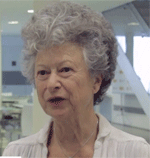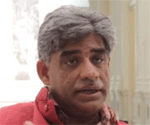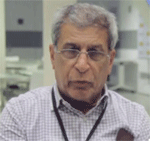Social Watch E-Newsletter - Issue 161 - March 21, 2014
Published on Fri, 2014-03-21 14:16
 |
| Issue 161 - March 21, 2014 |
|
|
|
|
| |
|
| |
Monitoring and accountability: Voices of the "watchers"
|
| |
|
| |
The participants in the civil society strategy meeting on monitoring and accountability organized by Social Watch last february in Montevideo were asked about how they personally work and relate with the huge task of making the powerful accountable. Here is what they said:
|
| |
|
| |

Barbara Adams.
|
Barbara Adams
"Partnerships" at the UN are being dominated by big corporations, big governments and big NGOs.
See the video here.
|
| |
|
| |

Jagadananda.
|
Jagadananda
Access to information is essential but not enough. In India we try to make sure that the information is used at all levels to make the institutions of governance accountable.
See the video here.
|
| |
|
| |

Abdulnabi Alekry.
|
Abdulnabi Alekry
Women and youth initiated the democratic uprising in Bahrein and are at the forefront of the struggle.
See the video here.
|
|
| |
See all the videos here. More coming soon. |
| |
|
| |
 |
Developing countries voice various concerns and priorities on differentiation, means of implementation, global partnership and a narrative in the 9th session of the Open Working Group on Sustainable Development Goals.
The first of five intergovernmental consultation sessions in the second phase of the United Nations Open Working Group (OWG) on Sustainable Development Goals (SDGs) took place on 3-5 March in New York. The eight OWG sessions thus far constituted the “input” phase. They took place over the course of one year, from March 2013 to February 2014.
The OWG is a key process for the follow-up of the outcome of the UN Conference on Sustainable Development in 2012 (Rio+20). The Co-chairs of the OWG are Ambassadors Macharia Kamau of Kenya and Csaba Korosi of Hungary.
On 21st February, the Co-Chairs delivered a ‘Focus Areas’ document attached to a letter to all Member States. While the Co-Chairs’ document did not indicate specific goals and targets, it did identify 19 clustered thematic areas that could define the SDG framework and that governments will discuss and develop further in their negotiation process. Read more
|
| |
|
| |
|
| |
 |
IThe basic parameters of the future development agenda were laid out at the autumn session of the UN General Assembly. The roadmap was presented and initial answers given as to where the global journey should be taking us from 2015 on. The train to genuine sustainability could soon jump the tracks.
At its core, the Post-2015 Agenda will interlink sustainability and the fight against poverty and hunger in a single framework binding on all countries. Compared to the Millennium Development Goals (MDGs), the Sustainable Development Goals (SDGs) shall now also guarantee peace and security, a democratic say, the rule of law, equal rights as well as human rights. So far, so good. As regards principles – such as the «common but differentiated responsibilities» of States – the UN consensus also coincides with the demands of international civil society. However, a «but» follows immediately, in that no concrete proposals for solving global crises are anywhere to be found in the final declaration. It omits any mention of the need to transform financial, trade and economic relations for the benefit of poor countries and to reduce glaring inequalities. Not to put too fine a point on it, after four UN reports, two years of deliberations and hundreds of consultations with business, academia and civil society, the morally and ethically inspired goals have elicited just a couple of roughly outlined implementation proposals. That betrays scant political will to tackle the problems at the root and dare to make real change. Read more
|
|
| |
|
| |
|
| |
With the outbreak of the “Arab Springs” the IMF rushed to Middle East and North Africa’s transitional governments to provide loans conditional upon the implementation of a fiscal consolidation approach to economic crisis.
These programs were accompanied by austerity measures contrary to the aspirations of the Arab populations for social justice, causing political instability. The Egyptian Center for Economic and Social Rights (ECESR), The Arab NGO Network for Development (ANND) and New America Foundation (NAF) Middle East Task Force, recently conducted a study of IMF recommendations to Arab governments.
In Tunisia, although cutting subsidies could alleviate Tunisia’s budgetary difficulties, such measures would impose an added burden on the poor—the group that is notoriously difficult to target and most in need of social protection. Read more
|
| |
|
| |
|
|
|
| |
|
| Made possible thanks to the funding and support of Oxfam Novib and the Flemish North South Movement - 11.11.11. |
 |
| The contents of this publication are the sole responsibility of Social Watch and can in no way be taken to reflect the views of Oxfam Novib and the Coalition of the Flemish North South Movement - 11.11.11. |
|
|
|
|
